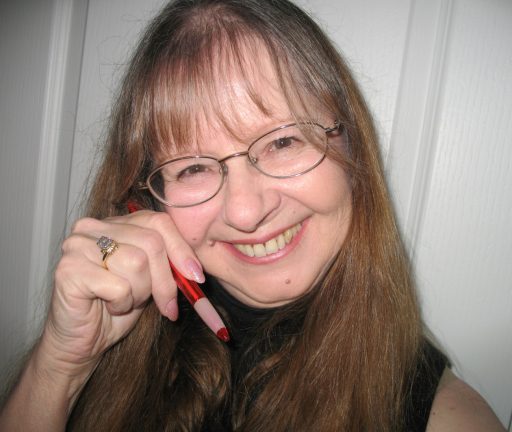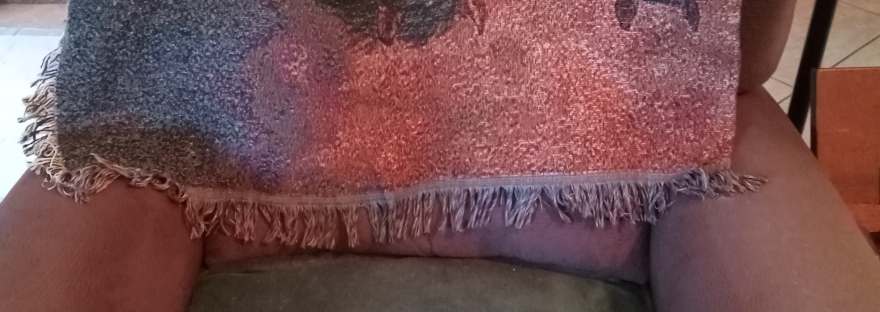Part 1 – Shock and Denial

Death is inevitable but that doesn’t make it any easier when you lose your spouse, your parent, your child, or a beloved pet. In my case, it was my husband.
It doesn’t matter if they have been deteriorating from the ravages of cancer or alzheimers (you fill in the blank), or a sudden unexpected death rips them from your life. Grief is inevitable.
In retrospect, my grief began before my husband took his final breath. It began the day the doctor told us our only options were chemo and radiation therapy, or hospice to keep him as comfortable as possible in the time he had left. That can’t be! We have so much to do. We were going to grow old together. Numbness camouflaged the seed of grief, but a sliver of me knew the doctor was being brutally honest with us.
Quality of life was of the utmost importance to my soulmate. He told the doctor, “If I can’t return to 90% of what I was, I’m not doing it.” Extending his life for who knows how long with nausea, vomiting, pain and mind-numbing headaches, just to prolong the inevitable end was unacceptable. We had seen the effects of cancer treatments on some of our friends.
The knowledge I was soon to lose him was too painful to face. I relegated the thought to a far corner of my mind but a piece of it lingered, nibbling at me.
When he was again admitted into hospital for blood transfusions then discharged himself against doctor’s orders, we came home and looked up hospice providers.
I supported his decision. I would have done the same, and will, if it comes down to a decision for myself.
Hospice overall helped to ease his pain in the days that followed but the cancer was relentless, metastasizing throughout his once-vibrant body., sapping his strength, his joie de vivre, then his will to live.
Every day I faced the fact I was powerless to save or help him aside from food (when he would eat), managing his meds, and other necessities for his daily existence. Frustration mounted, gnawing at my taut nerves despite the weekly visits from the hospice counselor—not that she didn’t help. She did. She talked to us together and one-on-one. I went a few times to my writers group while she stayed with my husband. He told her he was afraid I would only remember the times he was short-tempered (since ill) and she reassured him I would remember the good times.
The impending loss grew stronger inside my mind, much as I shied away from addressing it, from acknowledging it. The bright spots in my days were the rare times when my husband felt okay, and when I saw the hummingbird through the living room window.
Sitting there, I recalled the last time we went to the casino buffet, holding hands as always. I remembered thinking it might be our last time here together. The painful truth had hovered in my mind then but I had pushed it aside to savor our time together.
Our days of watching movies together on TV were over, replaced with the annoying blare of football. I had never liked sports but it served as background white noise for him now. After he was gone, my dislike of sports turned to abhorrence.
One night, he said he was going to IHOP. He was insistent so I helped him to the bedroom but he was winded before we could slip his jeans over his skeletal hips.
In the last days before I had to be beside him 24/7, I cleaned and organized under the master bathroom sinks. I HATE housework and I would never do this chore unless absolutely necessary, but I had to do something I could control.
My world as I knew it circled closer and closer, faster and faster into the dark at the end of a spiraling funnel. Despair nudged its way to the forefront, strengthening with each passing day.
Over time, caregiver mode dominated over loving wife mode—didn’t obliterate it, but took precedence. I think it was my subconscious going into self-preservation, to help me deal with the todays and the near future.
One morning, I heard my husband’s cries for help as if coming from inside a vacuum. Rushing from the bedroom to the back yard, I found him sprawled on the ground at the corner of the house. Blood dripped from a gash on his forehead and his glasses were askew with red drops on them. I wasn’t strong enough to get him up and yelled over the block wall to my neighbors to help. Fortunately, they were outside. I ran to the front door to unlock it and they came to our aid. After that, I slept in my recliner close to him.
On another day, he fell into the tub in the bathroom and hit his head on the spout. I managed to get him up and back to his chair.
Less than two weeks later, he fell two more times. On both occasions, I had left him sleeping and gone to the restroom. Fear gripped me when I found him on the floor in front of the couch, then the next day on the floor in front of my chair, bleeding from a cut sustained from hitting the edge of the dog bed. My wonderful neighbors again came to help him back into his chair.
To my shame, fear begat anger and I had chastised him the last two times. “How could you do that? I told you not to get up without me to help you!” It was an impulsive reaction borne out of concern and lack of sleep, one I regret to this day. He wasn’t thinking right with the pain drugs in his system. I’m sure he thought he could do it.
Frustration became a constant in my life—frustration and a growing sorrow at my inability to help him, at the futility of anything I could do, at my lack of control over the situation, at our lives together coming to an end. I couldn’t focus on anything. But I managed to suppress my tears in front of him. I wept in the privacy of the bathroom.
Reality slammed home as he lost weight and his muscles atrophied. One day I realized his distended belly and emaciated limbs resembled those of the starving children you see in TV solicitations for money. How could it have happened before my eyes? How could I not have noticed earlier? It seemed to happen almost overnight.
It reached the point where he no longer had the strength to help me get him up. I had to call on my neighbors who were so kind and patient despite the need to come over several times a day.
My soul mate’s breathing became labored and a machine was delivered to help him, but he wouldn’t use it because it was too noisy. Then the hallucinations began. His lightly freckled hands that once “tickled the ivories” trembled now, constantly plucked at a non-existent something on his knees.
The inevitable day came when I made a quick run to the restroom and hurried back to find him falling over the side of his recliner toward the table and lamp between our chairs. We used to laugh calling them our Ma and Pa Kettle chairs.
It was clear he could not be left alone for even a moment and I called hospice in the early hours. On their last visit, they had talked about bringing in a hospital bed but now opted for moving him into a facility “for a few days” to allow me respite. I had not been sleeping well, stirring at his slightest movement and it was wearing on me. I think the hospice people knew my husband probably had mere days left.
Hospice had difficulty finding a place for him. It took about twelve hours before the EMT came with a gurney and transported him to a rehab facility at the other end of town. I followed shortly thereafter to stay a few hours with him before I had to get back home to tend to our two dogs.
Part Two-PAIN AND GUILT was posted in July, 2023

